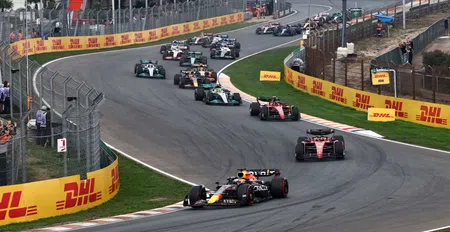BREAKING NEWS: FIA Budget Cap Investigation Concludes, Alpine and…Involved in…read more

FIA Budget Cap Investigation Concludes, Alpine and…Involved in…read more
The FIA (Fédération Internationale de l’Automobile) has concluded its investigation into budget cap compliance for the 2023 Formula 1 season. After several months of thorough scrutiny, the motorsport governing body announced that all ten Formula 1 teams adhered to the budget cap regulations, with none exceeding the spending limits set for the year. This comes after a period of heightened scrutiny on team finances, following previous high-profile breaches, notably by Red Bull Racing in 2021. The outcome of this investigation provides a degree of relief for fans and stakeholders concerned about the financial integrity of the sport.
In Formula 1, the budget cap was introduced to level the playing field, ensuring that no team could spend disproportionately more than their competitors. This regulation aims to create a more competitive environment by capping the amount teams can spend on car development, operations, and race activities. Introduced in 2021, the cap was set at $145 million, with incremental reductions planned for the following years to further reduce costs. This system is closely monitored by the FIA to ensure that every team competes on equal financial grounds.
The introduction of the budget cap brought with it a new era of financial oversight in Formula 1. Teams are now required to report their spending to the FIA, which verifies compliance with the cap through a detailed auditing process. This also applies to engine manufacturers, who face their own set of financial regulations.
No Budget Cap Breaches in 2023
The conclusion of the FIA’s 2023 investigation revealed a clean record for the ten competing Formula 1 teams. Despite concerns in previous years about overspending and potential loopholes, all teams were found to be fully compliant with the financial rules. This result is significant as it demonstrates that teams have adjusted to the new financial landscape and are abiding by the guidelines that the FIA set out.
This clean bill of health for the sport’s finances suggests that teams have learned from previous mistakes, including Red Bull Racing’s notable breach in 2021, which resulted in a hefty fine and a reduction in wind tunnel time for the team. Since then, the FIA has been clear about its intent to strictly enforce budget cap regulations, reinforcing the integrity of the sport.
Procedural Breaches for Alpine and Honda
While the ten Formula 1 teams were compliant with the budget cap, two power unit manufacturers, Alpine Racing SAS and Honda Racing Corporation (HRC), were found to have committed procedural breaches. The FIA’s Cost Cap Adjudication Panel (CCA) confirmed that while neither Alpine nor Honda exceeded the financial cap, both failed to fully adhere to the procedural regulations related to their power unit manufacturing and reporting.
The FIA clarified that the procedural breaches did not involve any intentional wrongdoing or deliberate attempts to exceed the financial limits. According to the report, both Alpine and Honda acted in good faith and have been cooperative with the FIA throughout the investigation.
Given the nature of the breaches and the complexities surrounding the financial regulations for power unit manufacturers, the FIA has opted for a more lenient approach. The CCA intends to resolve the matter by offering both Alpine and Honda an “Accepted Breach Agreement” (ABA), which is a voluntary settlement mechanism that allows the involved parties to acknowledge their errors without facing severe penalties.
In the FIA’s official statement, they highlighted the challenges associated with the first year of implementing these financial regulations for power unit manufacturers. It’s understood that the procedural breaches stem from these initial difficulties in adapting to the new rules. With this context in mind, the FIA appears to be offering leniency in light of the manufacturers’ cooperation and good faith.
Given the procedural nature of the breaches and the cooperation demonstrated by both Alpine and Honda, it seems unlikely that either will face penalties. The proposed ABA will likely serve as the resolution, allowing both manufacturers to continue their operations without disruption. This outcome reflects the FIA’s recognition





